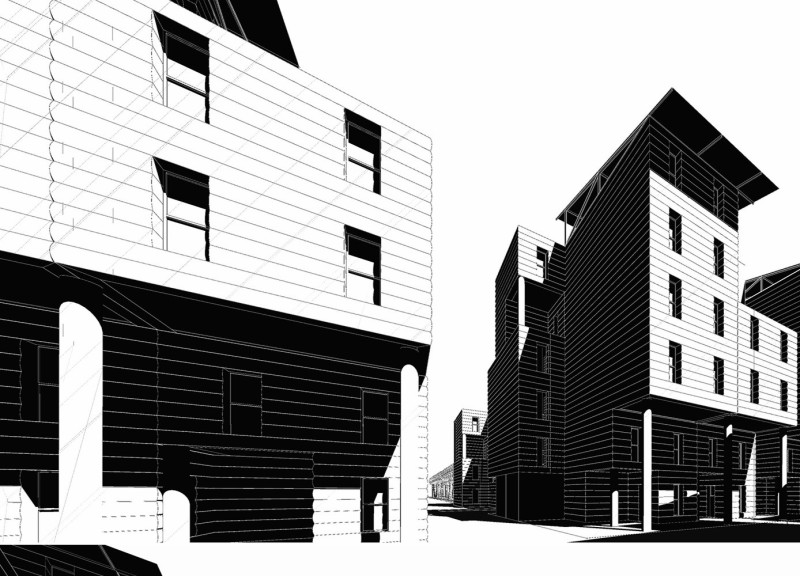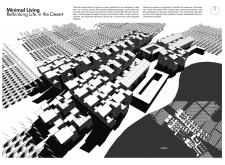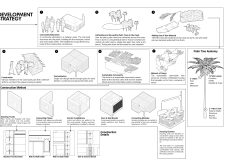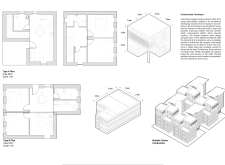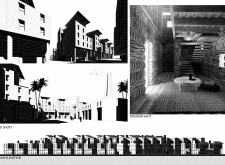5 key facts about this project
In the arid landscape of Egypt, a project seeks to connect urban and rural environments through a sustainable and culturally sensitive approach. Set in a Saharan oasis, the design integrates modular housing to support a community while respecting the local heritage. The focus is on creating spaces that enhance social interaction and environmental sensitivity.
Reimagining Vernacular Architecture
The goal is to rethink the vernacular architecture common in rural areas, which make up about 95% of Egypt’s territory. By combining local building techniques with modern principles of sustainability, the design prioritizes affordability and ecological concerns. The project encourages a community-driven strategy that adapts urban design elements to meet the needs of rural living.
Sustainable Community Development
A main aspect involves relocating the community to the oasis, where essential public buildings such as mosques, schools, and community centers will be constructed first. These structures will provide temporary homes for residents during the transition. Over time, the cultivation and harvesting of palm trees will play a critical role, contributing raw materials for construction while enhancing the local ecosystem.
Modular Housing Solutions
The housing is designed with a modular approach that allows families to personalize their living spaces. This flexibility promotes participation in the development, encouraging residents to take ownership of their new homes. The clusters of houses reflect traditional Arab urban layouts, featuring narrow streets and shaded pathways that support community interaction.
Passive Design Strategies
To address the challenges of the desert climate, the design incorporates thoughtful passive strategies aimed at increasing comfort. The layout of the street network maximizes shade and minimizes sun exposure. Deep pathways and gallery cross-sections protect pedestrians from the heat, creating cool spaces that encourage outdoor activities. The use of stacked palm trunks for constructing homes highlights a connection to traditional methods while adapting to contemporary needs.


